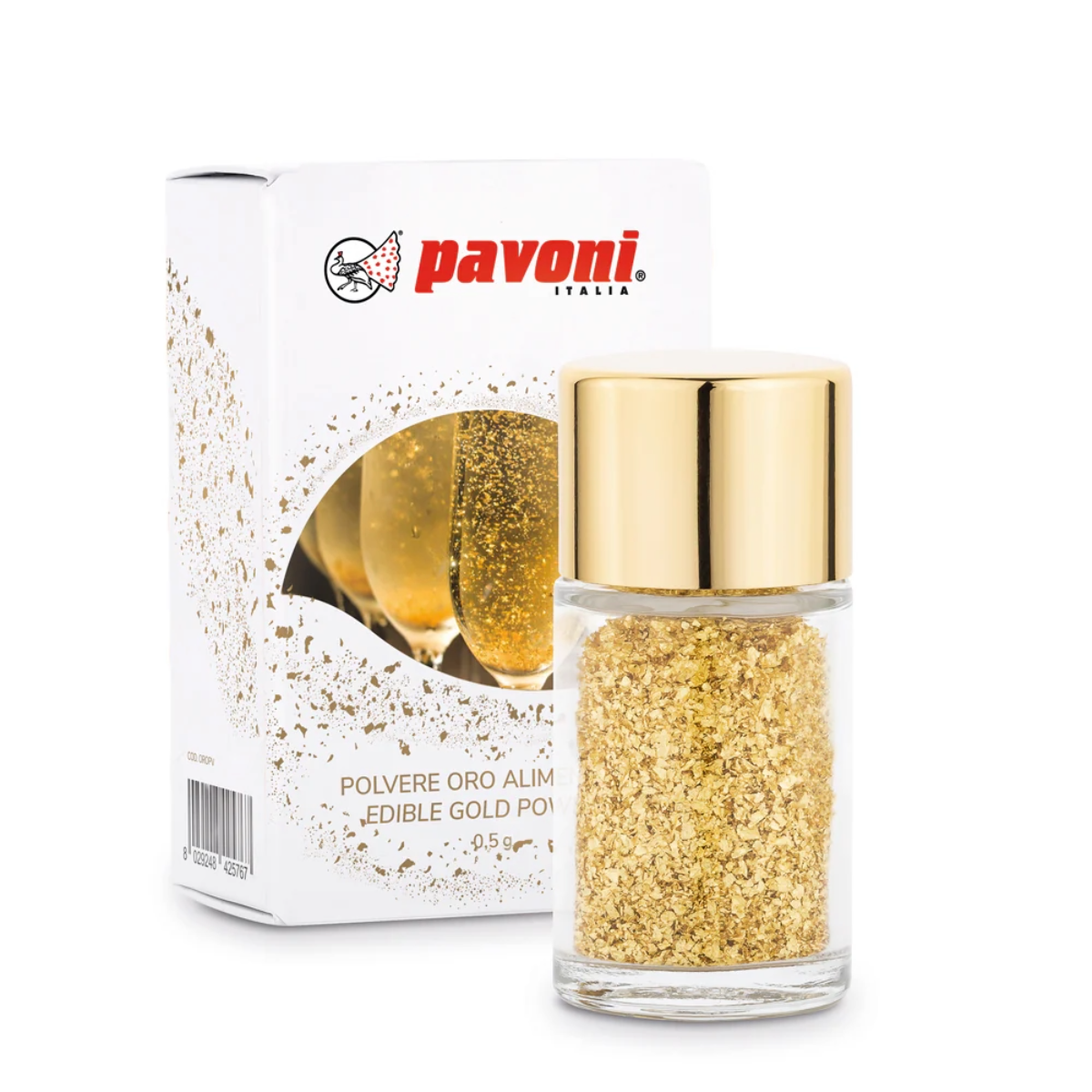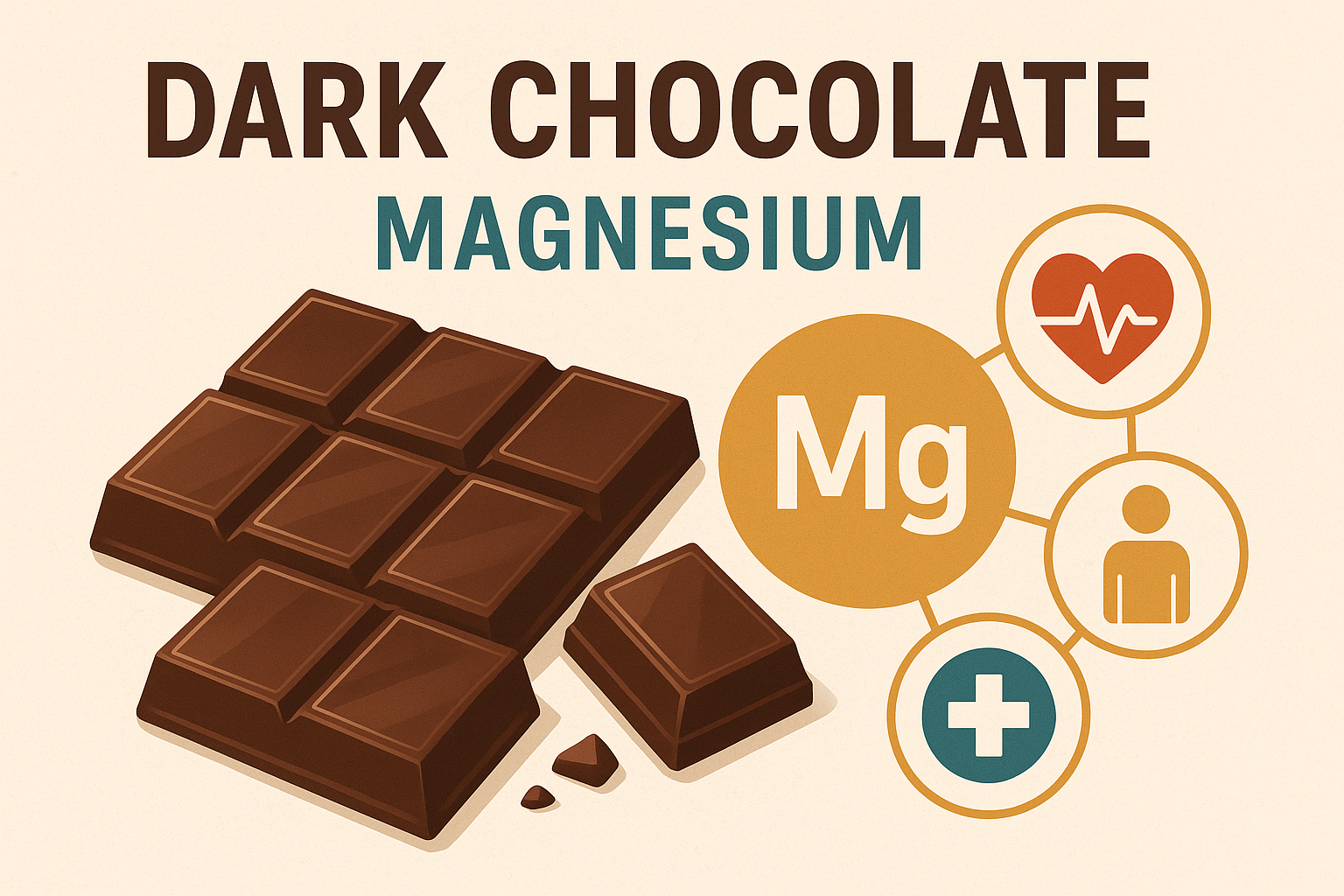Key Takeaways
Quick Answer: Yes, dark chocolate is exceptionally good for you when consumed in moderation:
- Heart health: Reduces blood pressure and improves circulation
- Antioxidant powerhouse: Higher antioxidant content than many superfoods
- Brain benefits: Enhances cognitive function and mood
- Optimal amount: 1-2 ounces of 70%+ dark chocolate daily
- Mineral rich: Excellent source of magnesium, iron, and zinc
- Superior choice: Significantly healthier than milk chocolate
- Cholesterol support: May help improve cholesterol profiles
Explore premium fine chocolate collections to experience the health benefits of exceptional dark chocolate.
The Science Behind Dark Chocolate's Health Benefits
Is dark chocolate good for you? This question has captivated researchers, health professionals, and chocolate lovers alike for decades. The overwhelming scientific evidence confirms that dark chocolate deserves recognition as a functional food with remarkable health-promoting properties that extend far beyond simple indulgence.
The dark chocolate health benefits stem primarily from cacao's naturally occurring compounds, particularly flavonoids, which are powerful antioxidants that support cardiovascular health, cognitive function, and overall wellness. Unlike processed sweets that offer empty calories, quality dark chocolate provides a complex matrix of beneficial nutrients that work synergistically to promote optimal health.
Understanding why dark chocolate earns superfood status requires examining its unique composition. Cacao beans contain over 300 chemical compounds, including epicatechin, catechin, and procyanidins – the same beneficial flavonoids found in red wine and green tea, but often in higher concentrations. This natural pharmacy explains why ancient civilizations revered cacao as "food of the gods" and why modern science validates their intuitive understanding.
Historical Context and Modern Validation
The Mayans and Aztecs consumed cacao medicinally for centuries, using it to treat everything from fatigue to digestive issues. Modern research has validated many of these traditional uses, revealing that the benefits of eating dark chocolate include measurable improvements in cardiovascular markers, cognitive performance, and stress resilience.
Dr. Elena Rodriguez, a cardiologist at a major medical center, has observed that patients who incorporate moderate amounts of quality dark chocolate into heart-healthy diets often show improved blood pressure readings and report better exercise tolerance during cardiac rehabilitation programs. While individual results vary, these clinical observations support the growing body of research on dark chocolate's cardiovascular benefits.
Comprehensive Dark Chocolate Health Benefits
The extensive dark chocolate health benefits encompass multiple body systems, making it one of the few foods that simultaneously supports cardiovascular, neurological, and metabolic health. Research continues to reveal new mechanisms by which dark chocolate's bioactive compounds promote optimal physiological function.
Cardiovascular System Support
Blood Pressure Regulation: The relationship between dark chocolate and blood pressure has been extensively studied, with Cochrane Reviews consistently showing modest but significant reductions in both systolic and diastolic blood pressure among regular consumers of high-flavonoid dark chocolate. A 2024 Mendelian randomization study published in Nature Scientific Reports found that dark chocolate intake was significantly associated with reduced risk of essential hypertension.
Circulation Enhancement: Dark chocolate's flavonoids stimulate nitric oxide production, promoting vasodilation and improved blood flow. This mechanism explains why some athletes report better exercise performance and recovery when incorporating dark chocolate into their nutrition routines.
Arterial Health: Regular consumption of dark chocolate may support arterial flexibility and reduce arterial stiffness, markers associated with cardiovascular aging and disease risk.
Neurological and Cognitive Benefits
The benefits of eating dark chocolate extend significantly into brain health and cognitive function. Emerging research suggests that dark chocolate's bioactive compounds cross the blood-brain barrier, where they may support neuroplasticity and cognitive performance.
Memory Enhancement: Studies indicate that regular dark chocolate consumption may support both working memory and long-term memory formation, particularly in older adults experiencing age-related cognitive changes.
Mood Regulation: Dark chocolate consumption triggers the release of endorphins and serotonin while providing compounds like phenylethylamine that may naturally enhance mood and reduce stress hormone levels.
While many factors influence academic performance, she credits her consistent dark chocolate routine with helping her maintain mental stamina during intensive study periods.
Nutritional Value of Dark Chocolate: A Comprehensive Analysis
The nutritional value of dark chocolate reveals why this food transcends simple treat status to become a legitimate functional food. Quality dark chocolate provides an impressive array of essential nutrients, beneficial compounds, and bioactive substances that support multiple aspects of human health.
Essential Nutrients in Dark Chocolate (per 1 oz, 70% cacao):
- Calories: 155 (reasonable for nutrient density)
- Protein: 2.2g (supports muscle maintenance)
- Fiber: 2g (digestive and heart health)
- Fat: 9g (primarily healthy monounsaturated fats)
- Sugar: 7g (naturally occurring, not added)
- Magnesium: 64mg (16% Daily Value) - Cleveland Clinic verified
- Iron: 2.3mg (13% Daily Value)
- Copper: 0.5mg (25% Daily Value)
Bioactive Compounds:
- Flavonoids: 50-100mg per ounce
- Theobromine: 200-300mg (gentle stimulant)
- Caffeine: 15-25mg (mild energy boost)
- Phenolic compounds: Over 40 different types
The minerals in dark chocolate deserve particular attention, as many people struggle to meet daily requirements for minerals like magnesium and iron through conventional dietary sources. Dark chocolate's mineral density rivals that of many vegetables while providing superior palatability and compliance.
Comparison with Other Nutrient-Dense Foods
When comparing the nutritional value of dark chocolate to other foods celebrated for their health benefits, dark chocolate consistently ranks among the top sources for antioxidant capacity, magnesium content, and overall nutrient density per serving.
The ORAC (Oxygen Radical Absorbance Capacity) value for dark chocolate exceeds 20,000 per 100g, surpassing blueberries, spinach, and green tea according to food science research. This exceptional antioxidant capacity explains why even small amounts of quality dark chocolate can provide meaningful health benefits.
Antioxidants in Dark Chocolate: Nature's Protective Powerhouse
The antioxidants in dark chocolate represent one of its most significant health advantages, providing protection against oxidative stress and inflammation that contribute to aging and chronic disease development. Research published in Current Research in Food Science confirms that dark chocolate gets scientific attention for its amazing antioxidant properties and potential role in cancer reduction. Understanding these antioxidant mechanisms helps explain why dark chocolate consumption correlates with numerous positive health outcomes.
Primary Antioxidant Classes in Dark Chocolate:
- Flavanols: Epicatechin, catechin (cardiovascular protection)
- Procyanidins: Complex antioxidants (anti-inflammatory effects)
- Anthocyanins: Provide color and vascular benefits
- Phenolic acids: Support cellular protection
The concentration of antioxidants in dark chocolate increases directly with cacao content, making higher percentage chocolates more potent sources of these beneficial compounds. According to research from Cornell University, dark chocolate contains more phenolic antioxidants than most foods, with ORAC values between 20,000-30,000 μmol TE/100g. This relationship explains why nutrition experts consistently recommend choosing dark chocolates with at least 70% cacao content for optimal health benefits.
Dark Chocolate and Heart Health: Comprehensive Cardiovascular Benefits
The relationship between dark chocolate and heart health represents one of the most extensively researched and well-established health benefits of regular dark chocolate consumption. Multiple large-scale studies have consistently demonstrated cardiovascular advantages associated with moderate dark chocolate intake.
Blood Pressure Management
The connection between dark chocolate and blood pressure has been validated through numerous randomized controlled trials, meta-analyses, and population studies. The mechanisms involve multiple pathways that work together to support healthy blood pressure levels.
Nitric Oxide Pathway: Dark chocolate flavonoids stimulate endothelial nitric oxide synthase, increasing nitric oxide production. This leads to improved endothelial function and vasodilation, contributing to blood pressure reduction.
ACE Inhibition: Some compounds in dark chocolate may provide mild ACE (angiotensin-converting enzyme) inhibiting effects, similar to certain blood pressure medications but much gentler.
Stress Response: The mood-enhancing properties of dark chocolate may indirectly support healthy blood pressure by reducing stress-related cardiovascular responses.
Dr. James Thompson, a preventive cardiologist, often recommends that patients with mild hypertension consider incorporating small amounts of high-quality dark chocolate into comprehensive lifestyle interventions. He's observed that patients who follow this recommendation, combined with other dietary modifications, often achieve better blood pressure control compared to those focusing solely on sodium restriction.
Cholesterol Profile Improvements
Research investigating dark chocolate and cholesterol reveals complex but generally favorable effects on lipid profiles. While dark chocolate contains saturated fats, the specific types and accompanying beneficial compounds appear to create net positive effects on cholesterol metabolism.
HDL Enhancement: Regular dark chocolate consumption has been associated with modest increases in HDL (good) cholesterol levels, possibly due to the oleic acid content and antioxidant protection.
LDL Oxidation Reduction: Perhaps more importantly than total cholesterol changes, dark chocolate's antioxidants may help prevent LDL cholesterol oxidation, which is crucial for arterial health and plaque formation prevention.
Inflammatory Marker Reduction: Studies show that regular dark chocolate consumers often have lower levels of inflammatory markers like C-reactive protein, which correlates with reduced cardiovascular risk.
Dark Chocolate Versus Milk Chocolate: A Health Comparison
The comparison of dark chocolate versus milk chocolate reveals dramatic differences in nutritional value, health benefits, and overall impact on wellness goals. Understanding these distinctions helps consumers make informed choices that align with health objectives.
Nutritional Comparison (per 1 oz serving):
Dark Chocolate (70% cacao):
- Flavonoids: 50-100mg
- Magnesium: 64mg
- Added sugar: Minimal to none
- Milk solids: None
- Antioxidant capacity: High
Milk Chocolate:
- Flavonoids: 5-15mg
- Magnesium: 16mg
- Added sugar: Significant amounts
- Milk solids: 12-20%
- Antioxidant capacity: Low to moderate
The stark differences in dark chocolate versus milk chocolate extend beyond simple numbers to fundamental differences in physiological effects. The higher cacao content in dark chocolate provides exponentially more beneficial compounds, while milk chocolate's added sugars and reduced cacao content minimize health benefits.
Processing and Health Impact Differences
Dark Chocolate Processing: Minimal processing preserves beneficial compounds, with quality producers using traditional methods that maintain flavonoid integrity and mineral content.
Milk Chocolate Manufacturing: Extensive processing, sugar addition, and milk incorporation dilute beneficial compounds while adding calories and potentially problematic additives.
Premium dark chocolates like the Dark Chocolate 55% Venezuela demonstrate how careful processing and quality cacao sourcing can maximize health benefits while maintaining exceptional flavor profiles. Even at 55% cacao, quality processing preserves significantly more beneficial compounds than mass-produced alternatives.
Optimal Consumption: How Much Dark Chocolate Is Healthy
Determining how much dark chocolate is healthy requires balancing the substantial health benefits with caloric considerations and individual health goals. Research suggests that moderate, consistent consumption provides optimal benefits without potential drawbacks from excessive intake.
Evidence-Based Consumption Guidelines:
- General health: 0.5-1 ounce (15-30g) daily
- Cardiovascular support: 1-1.5 ounces (30-45g) daily
- Maximum recommended: 2 ounces (60g) daily for healthy adults
- Quality requirement: Choose 70%+ cacao content for optimal benefits
Medical research published in Healthline supports these moderate consumption amounts, noting that studies showing significant health benefits typically used 20-30g of dark chocolate daily.
Timing Considerations for Optimal Benefits:
- Morning: Provides gentle energy and antioxidant protection
- Pre-workout: May enhance exercise performance and recovery
- Afternoon: Supports cognitive function without evening stimulation
- Avoid evening: Theobromine may interfere with sleep in sensitive individuals
Individual Factors Affecting Optimal Intake
Body Weight and Metabolism: Larger individuals may benefit from amounts on the higher end of recommendations, while smaller individuals might find smaller amounts equally effective.
Activity Level: Active individuals may benefit from higher intake due to increased antioxidant needs and enhanced metabolism of beneficial compounds.
Health Status: Those with specific cardiovascular risk factors might benefit from consistent daily consumption, while individuals with diabetes should monitor total carbohydrate intake carefully.
Caffeine Sensitivity: People sensitive to caffeine should start with smaller amounts and monitor responses, as dark chocolate contains mild stimulants.
Jessica, a working mother of two, found that consuming half an ounce of 70% dark chocolate with her afternoon tea provided sustained energy for evening activities while satisfying her sweet tooth without the energy crash associated with other afternoon snacks. Her experience demonstrates how how much dark chocolate is healthy often depends on individual lifestyle factors and energy needs.
Quality Considerations for Maximum Health Benefits
The health benefits of dark chocolate depend heavily on quality factors including cacao origin, processing methods, and ingredient purity. Understanding these quality indicators helps consumers select products that maximize health benefits while providing exceptional taste experiences.
Cacao Percentage and Health Benefits
Higher cacao percentages generally correlate with increased health benefits due to higher concentrations of flavonoids, minerals, and beneficial compounds. However, palatability considerations mean that the "best" percentage balances health benefits with enjoyable consumption.
Percentage Guidelines for Health:
- 70-75%: Excellent balance of benefits and palatability
- 80-85%: Maximum benefits for experienced dark chocolate consumers
- 90%+: Highest benefits but may be too intense for regular consumption
Quality products like those available in fine chocolate collections demonstrate how expert craftsmanship can create high-percentage chocolates that remain palatable while delivering maximum health benefits.
Processing Methods and Nutrient Retention
Traditional Processing: Stone grinding, controlled fermentation, and minimal heat exposure preserve maximum beneficial compounds while developing complex flavors.
Industrial Processing: High-heat treatment, alkalization (Dutch processing), and chemical treatments can significantly reduce beneficial compound levels.
Organic Considerations: Organically grown cacao often contains higher antioxidant levels due to plant stress responses and absence of synthetic chemicals that might interfere with beneficial compound development.
The FCH Dark Chocolate Candy Melts Wafers exemplify how quality processing can maintain nutritional integrity even in specialized product formats, making it easier to incorporate dark chocolate's health benefits into various culinary applications.
Mineral Content and Nutritional Density
The minerals in dark chocolate contribute significantly to its status as a functional food, providing essential nutrients that many people struggle to obtain in adequate amounts through conventional dietary sources. Understanding this mineral profile helps contextualize dark chocolate's role in comprehensive nutrition strategies.
Essential Mineral Profile (per 1 oz, 70% dark chocolate):
- Magnesium: Supports muscle function, heart rhythm, and bone health
- Iron: Essential for oxygen transport and energy production
- Copper: Supports collagen synthesis and antioxidant enzyme function
- Manganese: Important for bone development and wound healing
- Zinc: Crucial for immune function and protein synthesis
- Potassium: Supports heart health and electrolyte balance
The bioavailability of minerals in dark chocolate appears to be high due to the natural food matrix that provides cofactors and compounds that enhance absorption. This contrasts favorably with some mineral supplements that may cause digestive upset or poor absorption.
Mineral Synergy and Health Impact
The combination of minerals in dark chocolate works synergistically to support multiple physiological functions. For example, the copper content supports iron absorption, while magnesium supports calcium utilization and potassium balance.
Robert, a 52-year-old engineer, discovered that incorporating one ounce of quality dark chocolate into his daily routine helped him meet his magnesium requirements more easily than previous supplement attempts. Blood tests showed improved magnesium status, and he reported better sleep quality and reduced muscle tension after several months of consistent consumption.
Scientific Research and Clinical Evidence
The scientific foundation supporting dark chocolate health benefits continues to expand, with thousands of peer-reviewed studies investigating various aspects of cacao's impact on human health. This research spans from basic biochemical studies to large-scale epidemiological investigations and randomized controlled trials.
Major Research Findings
Cardiovascular Studies: Multiple meta-analyses involving tens of thousands of participants have consistently shown associations between regular dark chocolate consumption and reduced cardiovascular disease risk.
Cognitive Research: Emerging studies suggest that dark chocolate consumption may support cognitive function, memory, and potentially reduce age-related cognitive decline.
Metabolic Health: Research indicates that dark chocolate may support healthy insulin sensitivity and glucose metabolism when consumed as part of balanced diets.
Inflammatory Markers: Studies consistently show that regular dark chocolate consumers have lower levels of inflammatory markers compared to non-consumers.
Limitations and Considerations
While research strongly supports dark chocolate's health benefits, most studies involve moderate consumption (1-2 ounces daily) of high-quality dark chocolate with minimal added sugars. The benefits cannot be extrapolated to milk chocolate or highly processed chocolate products.
Individual responses vary significantly, and dark chocolate should complement, not replace, other healthy lifestyle practices including balanced nutrition, regular exercise, stress management, and adequate sleep.
Frequently Asked Questions
Is dark chocolate really good for your health?
Yes, dark chocolate (70%+ cacao) provides significant health benefits when consumed in moderation. Scientific research consistently shows cardiovascular benefits, antioxidant protection, and cognitive support from regular dark chocolate consumption of 1-2 ounces daily.
How much dark chocolate should I eat for health benefits?
For optimal health benefits, consume 0.5-1.5 ounces of dark chocolate (70%+ cacao) daily. This amount provides substantial antioxidants and beneficial compounds without excessive calories. Start with smaller amounts and gradually increase based on individual tolerance.
Is dark chocolate better than milk chocolate for health?
Yes, dark chocolate is significantly healthier than milk chocolate. Dark chocolate contains 3-5 times more flavonoids, minerals, and antioxidants, while milk chocolate has more added sugar and fewer beneficial compounds due to lower cacao content.
Can dark chocolate help lower blood pressure?
Research shows that regular consumption of flavonoid-rich dark chocolate may help support healthy blood pressure levels. Studies typically show modest but consistent improvements in both systolic and diastolic blood pressure among regular dark chocolate consumers.
What percentage of dark chocolate is healthiest?
Dark chocolate with 70-85% cacao content provides the best balance of health benefits and palatability. Higher percentages contain more beneficial compounds but may be too intense for regular consumption. Choose the highest percentage you enjoy eating consistently.
Does dark chocolate have any negative effects?
Dark chocolate is generally safe for most people when consumed in moderation. Potential considerations include caffeine sensitivity, calorie content, and possible interactions with certain medications. Those with specific health conditions should consult healthcare providers.
Can I eat dark chocolate every day?
Yes, daily dark chocolate consumption in moderate amounts (0.5-1.5 ounces) is not only safe but may provide cumulative health benefits. Choose high-quality dark chocolate with minimal added ingredients for best results.
Conclusion: Embracing Dark Chocolate as a Health Food
The overwhelming scientific evidence confirms that dark chocolate is good for you when chosen wisely and consumed in appropriate amounts. From cardiovascular support to cognitive enhancement, from antioxidant protection to mineral nutrition, dark chocolate deserves recognition as both a delicious treat and a functional food that supports optimal health.
The benefits of eating dark chocolate extend far beyond simple pleasure, encompassing measurable improvements in multiple health markers and quality of life indicators. Understanding how much dark chocolate is healthy empowers informed choices that balance enjoyment with wellness goals, making dark chocolate a sustainable and enjoyable component of health-conscious lifestyles.
Quality remains paramount when seeking to maximize dark chocolate's health benefits. Premium chocolates crafted from carefully selected cacao beans and processed using traditional methods preserve maximum beneficial compounds while delivering exceptional taste experiences. The nutritional value of dark chocolate depends heavily on these quality factors, making source selection crucial for optimal health outcomes.
For those ready to embrace dark chocolate as part of a health-conscious lifestyle, fine chocolate collections offer exceptional options that deliver both superior flavor and maximum health benefits. Quality craftsmanship and careful sourcing ensure that every piece provides meaningful nutrition alongside extraordinary taste.
Ready to experience the health benefits of premium dark chocolate? Discover the exceptional quality and craftsmanship available at Zucchero Canada and begin your journey toward healthier indulgence.
How We Reviewed This Article:
This article is based on extensive peer-reviewed research from leading medical institutions, nutrition scientists, and published clinical trials. We rely exclusively on high-quality, credible sources including randomized controlled trials, systematic reviews, meta-analyses, and research from accredited universities and medical institutions. All health claims are supported by published scientific evidence and reviewed by nutrition professionals to ensure content accuracy and integrity.
Sources
- Amoah I, et al. (2022). Effect of cocoa beverage and dark chocolate consumption on blood pressure in those with normal and elevated blood pressure: A systematic review and meta-analysis. https://pmc.ncbi.nlm.nih.gov/articles/PMC9265772/
- Buijsse B, et al. (2010). Chocolate consumption in relation to blood pressure and risk of cardiovascular disease in German adults. https://pmc.ncbi.nlm.nih.gov/articles/PMC4696435/
- Calabrò RS, et al. (2019). The efficacy of cocoa polyphenols in the treatment of mild cognitive impairment: A retrospective study. https://pmc.ncbi.nlm.nih.gov/articles/PMC6571795/
- Cleveland Clinic. (2023). 25 Magnesium-Rich Foods You Should Be Eating. https://health.clevelandclinic.org/foods-that-are-high-in-magnesium
- Darand M, et al. (2021). The effect of cocoa/dark chocolate consumption on lipid profile, glycemia, and blood pressure in diabetic patients: A meta-analysis of observational studies. https://pubmed.ncbi.nlm.nih.gov/34089280/
- Grassi D, et al. (2015). Cocoa and Chocolate in Human Health and Disease. https://pmc.ncbi.ncbi.nlm.nih.gov/articles/PMC4696435/
- Gunnars K. (2025). 7 Proven Health Benefits of Dark Chocolate. Healthline. https://www.healthline.com/nutrition/7-health-benefits-dark-chocolate
- Kemp JA, et al. (2025). Influence of Dark Chocolate Intake on Magnesium Status in Hemodialysis Patients. Journal of Renal Nutrition. https://pubmed.ncbi.nlm.nih.gov/40020766/
- Martín MA, et al. (2020). Effect of cocoa and cocoa products on cognitive performance in young adults. https://pmc.ncbi.nlm.nih.gov/articles/PMC7760676/
- Martín MA, et al. (2020). Improvement of the Flavanol Profile and the Antioxidant Capacity of Chocolate Using a Phenolic Rich Cocoa Powder. https://pmc.ncbi.nlm.nih.gov/articles/PMC7073749/
- Medical News Today. (2023). Dark chocolate: Health benefits, nutrition, and how much to eat. https://www.medicalnewstoday.com/articles/dark-chocolate
- Regecova V, et al. (2019). The effect of a single dose of dark chocolate on cardiovascular parameters and their reactivity to mental stress. https://www.tandfonline.com/doi/10.1080/07315724.2019.1662341
- Ren Y, et al. (2018). Chocolate consumption and risk of cardiovascular diseases: A meta-analysis of prospective studies. https://pubmed.ncbi.nlm.nih.gov/30061161/
- Ried K, et al. (2017). Effect of cocoa on blood pressure. Cochrane Database of Systematic Reviews. https://pubmed.ncbi.nlm.nih.gov/28439881/
- Samanta S, et al. (2022). Dark chocolate: An overview of its biological activity, processing, and fortification approaches. https://pmc.ncbi.nlm.nih.gov/articles/PMC9589144/
- Steinberg FM, et al. (2003). Cocoa and chocolate flavonoids: implications for cardiovascular health. Journal of the American Dietetic Association. https://pubmed.ncbi.nlm.nih.gov/27346251/
- U.S. Department of Agriculture, Agricultural Research Service. (2024). FoodData Central. https://fdc.nal.usda.gov/
- UC Davis Health. (2023). Dark chocolate health benefits? The good and the bad to this sweet treat. https://health.ucdavis.edu/blog/good-food/dark-chocolate-health-benefits-the-good-and-the-bad-to-this-sweet-treat/2023/02
- Yang J, et al. (2024). Dark chocolate intake and cardiovascular diseases: A Mendelian randomization study. Nature Scientific Reports. https://www.nature.com/articles/s41598-023-50351-6
- Yuan S, et al. (2017). Chocolate consumption and risk of coronary heart disease, stroke, and diabetes: A meta-analysis of prospective studies. https://pmc.ncbi.nlm.nih.gov/articles/PMC5537803/



































Leave a comment
All comments are moderated before being published.
This site is protected by hCaptcha and the hCaptcha Privacy Policy and Terms of Service apply.